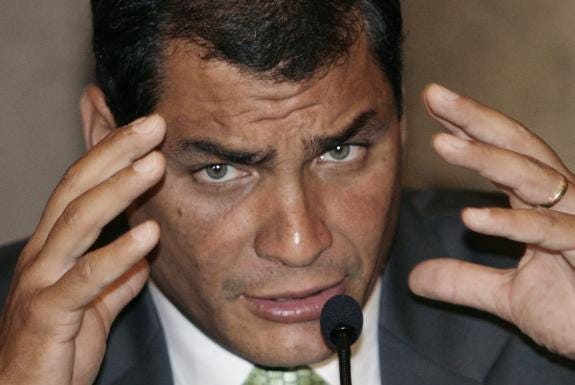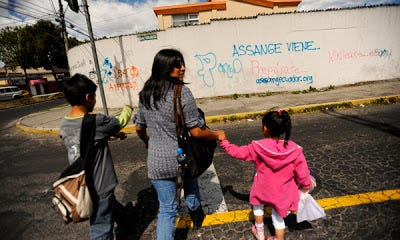Ecuador, Assange and the broader implications for the imperial west and a surging Latin America
“We want to be very clear, we’re not a British colony. The colonial times are over,” Ecuadorean Foreign Minister Ricardo Patino said in an angry statement after a meeting with President Rafael Correa.
-Hurriyetdaily
Assange’s asylum in the Ecuadorian embassy has brought up many issues of the treatment of Latin America by the former imperial powers of Europe and the current hegemonic regime of the United States. Ecuador has exercised what is seen as a sovereign right in the diplomatic sphere by allowing Julian Assange, a very much wanted man by the United States government for his leaking of sensitive documents, to seek asylum in their embassy. The British reaction, to threaten to remit the diplomatic immunity of the embassy itself for the purposes of forcing their way into the building and taking Assange for extradition to Sweden to face sexual assault charges, is a reaction some see as meddling or the vestiges of a colonialism steeped in the past of both countries.
Ecuador’s current president, Rafael Correa, is a proud socialist in charge of a left wing government of the same type that has been sweeping the region in recent years. Defined by nationalization of industry and rejection of American imperialist status quo, Correa’s government, along with those of Bolivian President Evo Morales, Venezuelan President Hugo Chavez and President Cristina Fernandez de Kirchner of Argentina, has acted to provide an increasingly heavy counterweight to the previous regularization of Latin American affairs. The asylum for Assange is only the latest flexing of Latin American anti-imperialist muscle, but it seems destined to be a very controversial one, with the global left divided on whether the good Assange has done by information sharing outweighs the accusations leveled against him in Sweden.
Reaction in Ecuador has been mixed, but largely positive. A surge of nationalistic pride and independence has swept the country, manifesting in graffiti such as “Assange Vieno”. Not everyone is swept up in the fervor, however, and many believe Correa’s motivations for granting asylum are more in line with his political aspirations and self preservation. The general mood seems to be in favor of the action, and against the reaction of the British government.
Both Britain and Ecuador have stated that the rift in diplomatic relations over this incident is not irreparable, and both countries have announced as of the past week that talks between the countries will resume. Correa has stated that under conditions that Assange not be sent to a third country or face the death penalty anywhere, he may be willing to release Assange to the British authorities.





